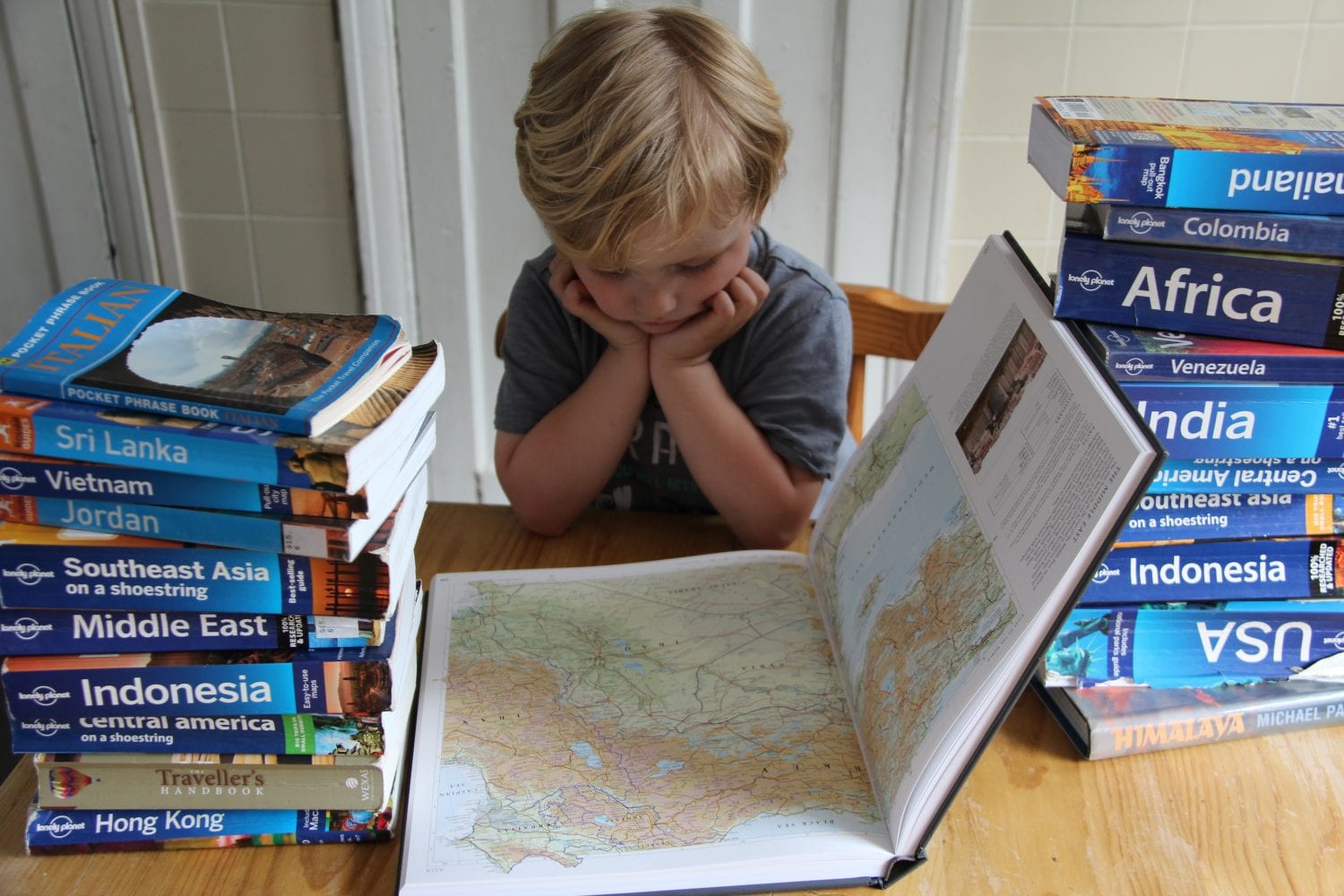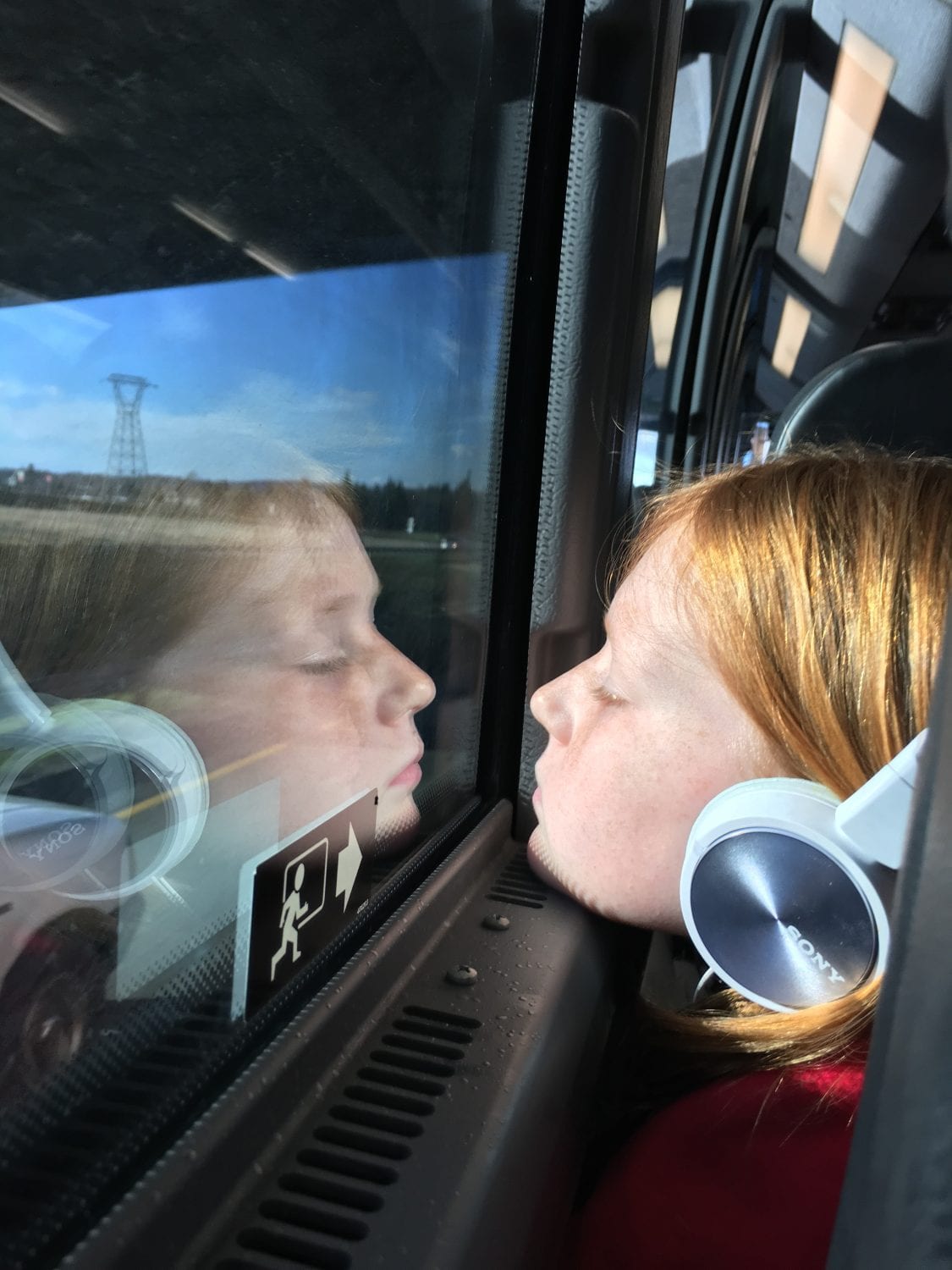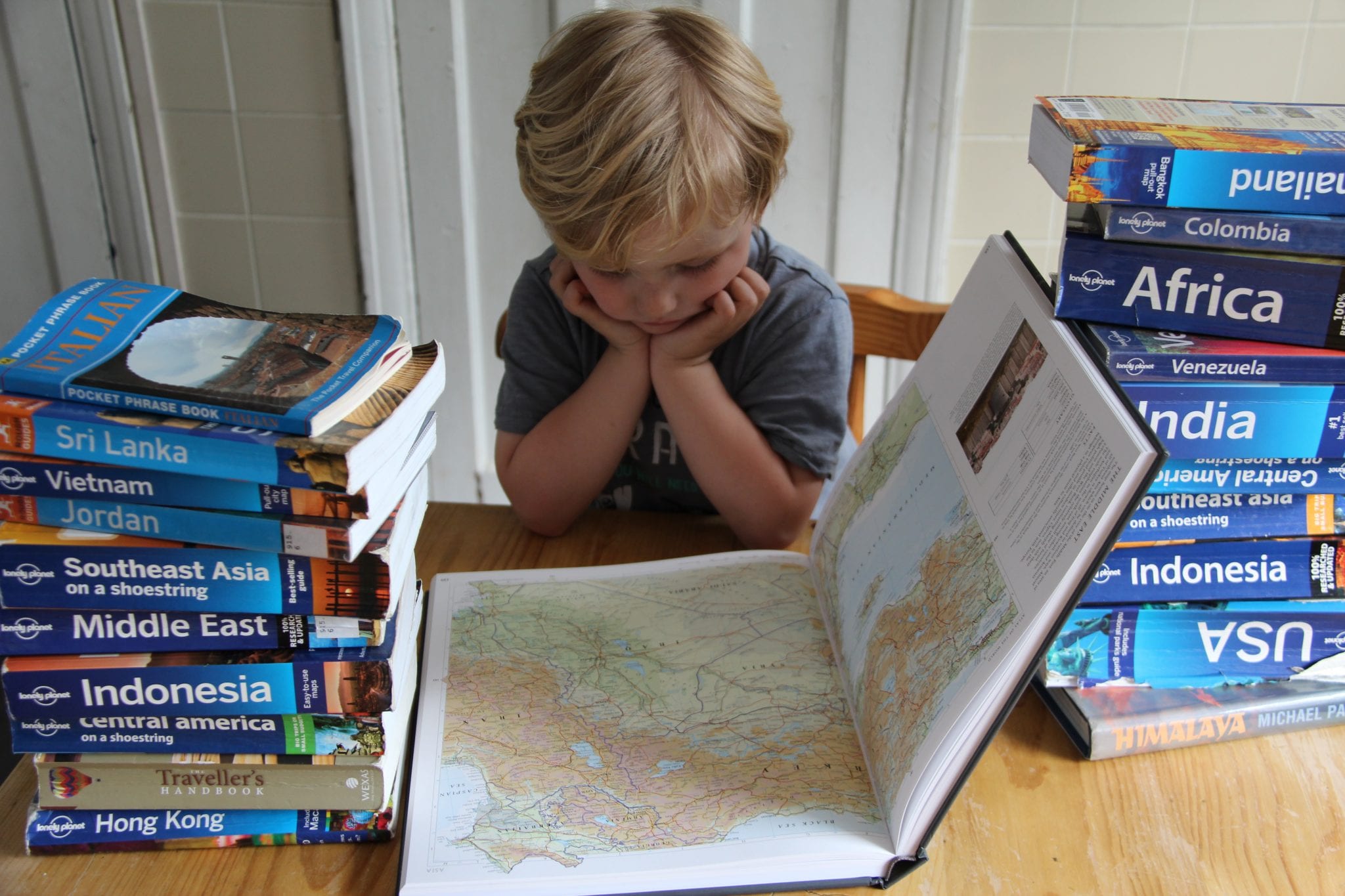Planning

There is a famous saying ‘poor planning equals poor performance’ it’s absolute rubbish and applies only to those who are so unilateral that they can’t think on their feet and re-plan on the go. When traveling with kids however, at least some planning is essential.
Before you sit down and put pen to paper you must decide on what approach to planning you are going to take:
1 – Plan everything:
Flights to accommodation and travel on a self-made tour. This literally means you have every flight, every connection and everything you physically can book from home – Booked. This will take out a lot of stress but the price you pay is inflexibility and there is potential for losing money.
Pros/Cons
Perfect for those that lack confidence such as first time or single travellers. – Inflexible, if the you love somewhere you cant stay longer, if the weather ruins your plans you have to deal with it.
– You can budget knowing your highest expenses are covered, with things like flights and accommodation often cheaper when booked in advance. – If a travel connection misses it can have knock on effects, not just logistically but financially.
– You can plan around where you’ll know for sure you will be. – You can’t check out accommodation up front.
– You can pay up front for many things. – Not everything is pre-bookable and so you made cut yourself short.
– You can fully arrange all pre travel medical requirements such as vaccinations and Malaria prophylaxis. – You lose the ability to haggle on prices for accommodation.
– People back home will know your itinerary and so know where you are. – The political situation could change by the time you turn up, rendering your trip useless.
2 – Plan transport only with the odd big city hotel booked.
This is my preferred method, it allows me to get in and out (this is sometimes a visa requirement) but to then have flexibility within a country. For example if that country is India I tend to go as far as booking trains too as they can fill up weeks in advance. I would not recommend this method for anyone lacking confidence in themselves and their haggling abilities.
Pros/ Cons
– Allows you to cover your biggest costs such as flights but leaves you flexibility. For example you fly into India on the 1st, you fly out on the 30th, and everything else is booked on the go. – You must spend time booking things on the go and so a Wi-Fi connection may be required.
– Allows flexibility. – You may find that you arrive somewhere and there is no accommodation available, or only at a premium cost.
– Ability to plan around the weather & other factors such as political issues. – Internal transport may be fully booked and so you may end up somewhere you didn’t plan or miss somewhere you wanted to go.
– Allows partial budgeting.
– You leave yourself wide open to taxi drivers and touts.
– May be the cheapest way of all. – Might end up being the most expensive way of all, often prices rise significantly in peak season.
– You can see your accommodation before you pay.
– You can fully arrange all pre travel medical requirements such as vaccinations and Malaria prophylaxis.
3 – Book only your outbound flight or an open jaw ticket.
Many independent travellers (and we have done it) simply buy a flight to Bangkok for example and then plan on coming home when they have spent up or had enough. This is more for long term travellers, or for those who can afford to stump up money as and when.
Pros /Cons
– Complete flexibility to do what you want, when you want and for how ever long you want. – Transport may be fully booked or when booked last minute be very expensive
– You can manage your budget by lingering in places that are particularly cheap.
– You may need vaccinations prior to travel in certain areas meaning you will have to trust some dodgy doctor and a rusty syringe.
– You can scoot through places which turn out to be expensive. – Safety/political situation may change.
– You can hook up with fellow travellers with the same flexibility. – You may end up lingering and feeling no need to move on, though not always a bad thing!
So now you’ve decided on the approach, you need to consider certain issues.
This is my preferred method, it allows me to get in and out (this is sometimes a visa requirement) but to then have flexibility within a country. For example if that country is India I tend to go as far as booking trains too as they can fill up weeks in advance. I would not recommend this method for anyone lacking confidence in themselves and their haggling abilities.
What is your Budget?


Once you have worked out your budget you need to look at costs of where you want to go and see how that fits in with your cash situation.
In terms of cheapest countries to travel in Asia, Nepal is by far the cheapest with India a close second. In SE Asia, Cambodia tops the list of cheapest countries with Singapore being the most expensive. The most expensive countries in Asia however are Bhutan and Tibet due to restrictions on tourists.
Consider the following:
Flight costs
Visa costs
Costs once there
Departure tax
Traveling by land often avoids departure tax, but not all border crossings offer Visas, additionally some visas must be purchased prior to travel such as India and China (amongst others).
Additionally you must weigh costs up, it might cost a lot in flights and visas but these may be balanced by the day to day costs once there.
Where do you want to go?
Are you looking to do family activities? What do you consider a family activity? Believe me, that absolutely stunning beach you step foot on might be paradise on earth, but after a few sand castles and a failed attempt to dig to Australia the kids will be looking for the days next activity. Likewise, if you trek around temples all day every day the mystique can easily become ‘just another temple’ to kids. I have always found that balancing what you do is the best way.
In terms of recommendations I would suggest all first time travelers head to SE Asia (see my recommended itineraries), seasoned travelers head to India and those with a bit more cash Central America. For those looking for adventure without the hassle then head to the US and for history buffs with money to burn to Europe.
But deciding where you want to go is only half the battle, you need to consider where you want to go in the place/region you want to go to.
A good idea is to start and look at transport connections within a country, if it has good flights (like SE Asia) then consider flying in and out of a hub (Kuala Lumpur and Singapore) or take the train North to South. Understand that land transport travels much slower than in the West and a 100km bus journey can easily take half a day. Do you want to take on a huge country like India? Or do you want quick hops between places?
You should also consider the costs for children, though many places offer free entrance for under 12’s some charge full price. Check UNESCO for prices to heritage sites, or most major attractions do have some kind of basic website detailing costs. Though not always for children unfortunately.
How long have you got?
People have often asked why I go away for such periods of time and not for just a fortnight. The answer is simple, the biggest costs related to a long haul holiday are likely to be the flights. But once there the costs are minimal and so if you are paying say £500 for return flights to Thailand, well the duration of your stay is then dependent only on your day to day costs.
Then think about a two week holiday, you will go and completely blow your budget within that fortnight, but go for six weeks (OK I accept the increased accommodation) and pace yourself and that 6 week holiday probably won’t cost that much more than 2 weeks.
In terms of advice for how long to go, I find 8 weeks is about right and fits my budget, but if the kids didn’t have school and I had a larger budget we would go for much longer, probably for years.
It’s all purely academic and most people will find themselves planning their time around factors they have little control over such as school and work.
Have you considered health issues such as Malaria and vaccinations?
Some vaccinations must be administered up to 6 weeks prior to travel with the majority requiring at least 2 weeks and so the sooner you get booked in with the nurse the better. Additionally you should consider paying the dentist a visit for a check-up.
I have been advised by a doctor in the UK that dental treatment in some countries is not carried out according to any kind of minimum standard and that any fillings etc should be done without local anaesthetic. With that in mind try and get a dentist to foresee any potential issues prior to travel.
You should also determine what Malaria prophylaxis you require, remembering that some anti malarials and vaccinations are unsuitable for young children.
See http://www.fitfortravel.nhs.uk/home.aspx for up to date information regarding travel to foreign countries and suggested vaccinations and malaria issues. Ultimately though a doctor/nurse should be consulted for the most up to date and reliable information and advice.
Those traveling with babies and young children have a plethora of other issues to consider, all of which are covered here.






Comments are closed.